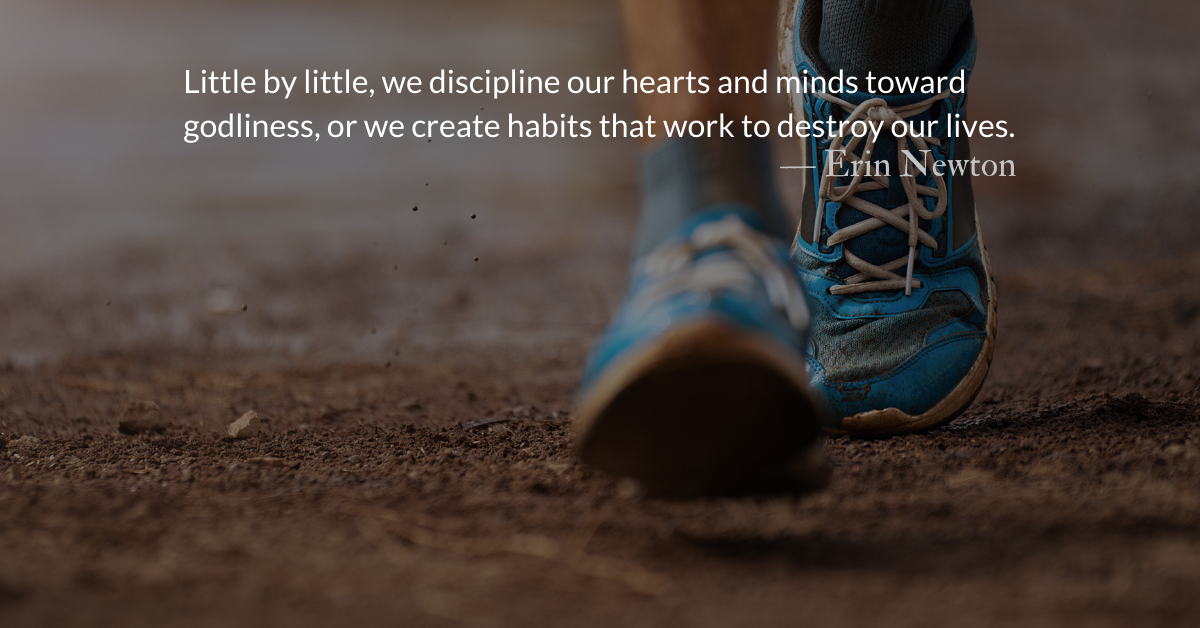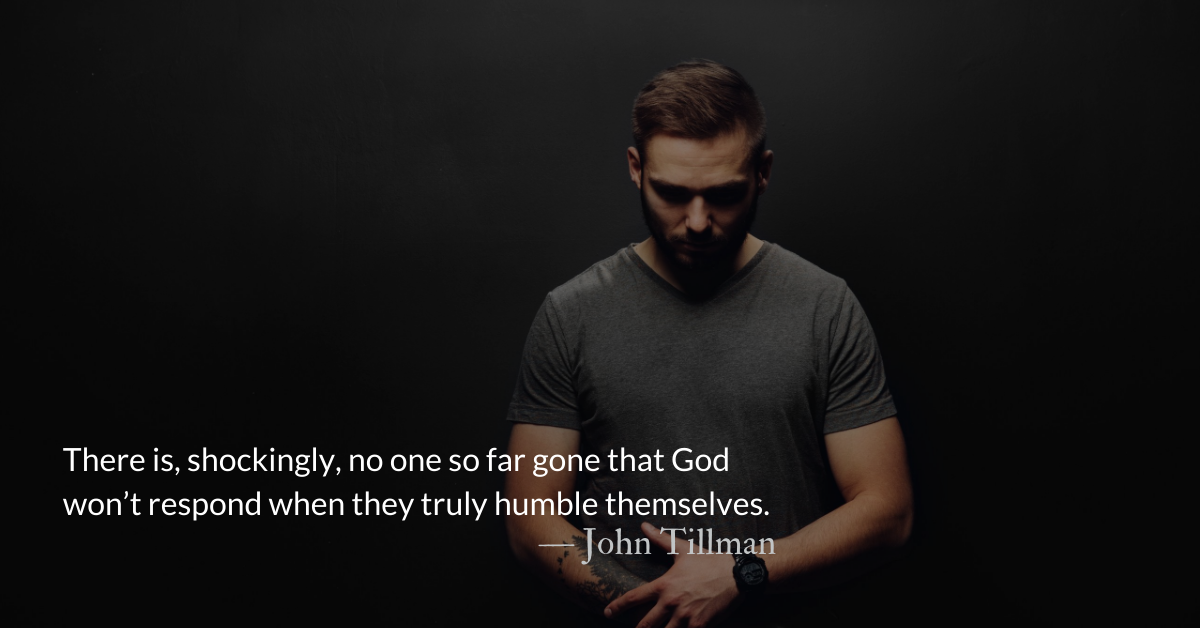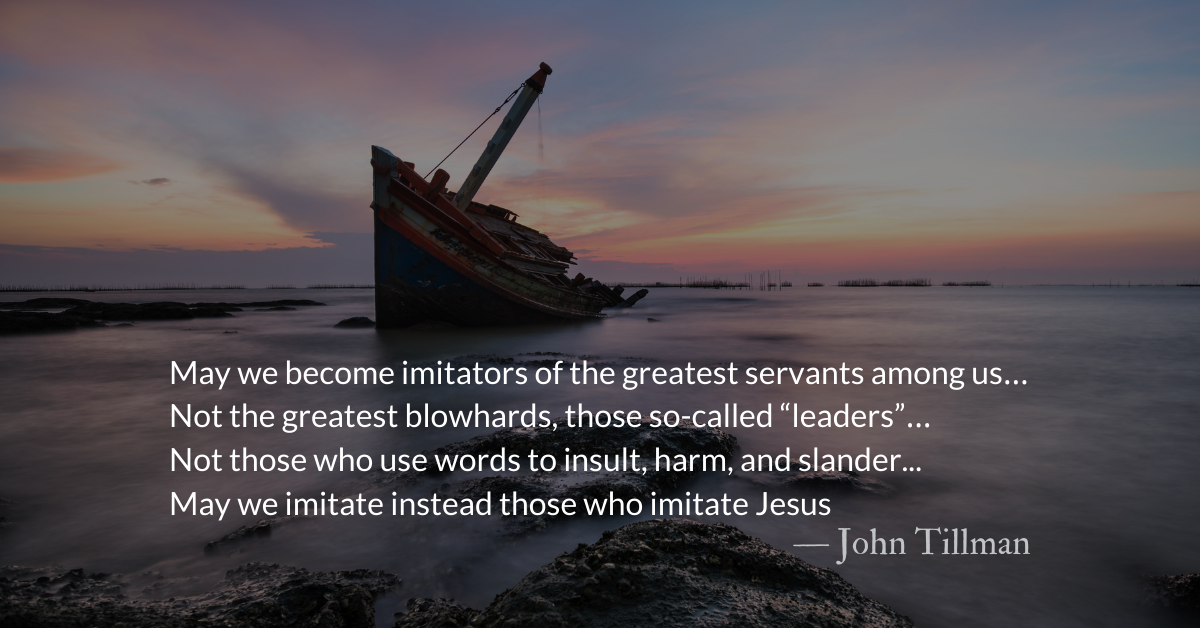Scripture Focus: 2 Kings 2.11-14
11 As they were walking along and talking together, suddenly a chariot of fire and horses of fire appeared and separated the two of them, and Elijah went up to heaven in a whirlwind. 12 Elisha saw this and cried out, “My father! My father! The chariots and horsemen of Israel!” And Elisha saw him no more. Then he took hold of his garment and tore it in two.
13 Elisha then picked up Elijah’s cloak that had fallen from him and went back and stood on the bank of the Jordan. 14 He took the cloak that had fallen from Elijah and struck the water with it. “Where now is the Lord, the God of Elijah?” he asked. When he struck the water, it divided to the right and to the left, and he crossed over.
Reflection: Christ, Our Double Portion
By John Tillman
Before parting the Jordan river to recross it, Elisha asked, “Where now is the God of Elijah?”
Elisha was present for much of Elijah’s ministry. He knew he was following and learning from a legend. The entire prophetic community seemed to realize that this legend would soon be taken by the Lord.
We often connect God’s presence with the presence of people who taught us about him or who have been faithful to him. Elisha said, “the God of Elijah.” We may think about the God of our parents or our pastors or other faith leaders. Elisha pushed away discussion with his fellow prophets of Elijah’s departure. We may push away thoughts of losing people upon whom we have relied.
When Christian heroes, mentors, or friends pass, we often have an emotional and a spiritual reaction. We dread losing these voices. Will God be with us like he was with them? Will God work in our lives in the same way he did through them?
Many of us have looked around and wondered, “Where is the God of the past?” Will he show his power today as he did then? Like Gideon, we question God based on our circumstances. (Judges 6.13) Like Elijah, we question God’s support. (1 Kings 19.14)
God answers Elisha by parting the Jordan. Elijah’s God is with Elisha and is still our God today. God is with us now, regardless of what past leader has died, has failed, or has fallen into sin. God is our God and we are his prophets and priests in the world.
The cloak Elisha picked up was not dropped by accident. It was meant for him. It was his anointing. Elijah threw it over Elisha’s back as he plowed to call him away from a simple life of farming into the dangerous employment of prophesying to wicked kings. (1 Kings 19.19)
The “double portion” that Elisha asked for is ours in Christ. Our mantle and anointing is the Holy Spirit of God which has been laid on our shoulders. Like Elisha, we have been called from plowing hardened earth to prophesying to hardened hearts. Like Peter, we are called from spreading nets for fish to spreading the gospel to people.
Elisha wasn’t called to be Elijah but to be God’s. We have the same calling. Be God’s.
Music: Elijah, by Rich Mullins. (Rich Mullins often signed autographs, “Be God’s.”)
Divine Hours Prayer: The Refrain for the Morning Lessons
I will walk in the presence of the Lord in the land of the living. — Psalm 116.8
– From The Divine Hours: Prayers for Summertime by Phyllis Tickle.
Today’s Readings
2 Kings 2 (Listen – 4:26)
2 Thessalonians 2 (Listen – 2:32)
Read more about Ahab and David
God will have mercy whenever there is true repentance. Persevere in sharing the gospel with the strength and boldness of Elijah, Micaiah, and Elisha.
Read more about Over Jordan
In transition from Moses to Joshua, from Elijah to Elisha, and from John the Baptist to Jesus, the Jordan symbolizes a change in leadership.






